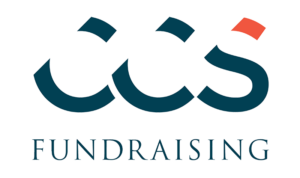On Monday, December 21, Congress approved a $900 billion coronavirus relief bill. If signed into law, many of the bill’s provisions would directly benefit nonprofits and fundraisers, helping to soften the blow of the continued impact of the COVID-19 pandemic. Read on for a summary of the key opportunities for the nonprofit sector.
Extended Tax Incentives for Charitable Giving
This bill allows individual and corporate donors to take advantage of expanded tax deductions in 2021. These incentives were previously only implemented for tax year 2020 through the March 2020 CARES Act. Importantly, both large and small individual donors gain extra incentives to give to charity through these measures.
- For individuals who do not itemize: in 2021 as in 2020, individuals who do not itemize their taxes can still deduct up to $300 in charitable gifts as a single person and up to $600 in charitable gifts as a couple. Prior to the CARES Act, those who used the standard deduction could not deduct any charitable giving. For context, in tax year 2018 almost 90% of taxpayers claimed the standard deduction while about 10% itemized their deductions, down from around 30% itemizing in recent years.
- For individuals who do itemize: the limit on charitable deductions for individuals who itemize will remain at 100% of their adjusted gross income in 2021, instead of the typical 60%.
- For corporations: the cap on charitable deductions for corporations will stay at 25% of taxable income in 2021, instead of the typical 10%. Additionally, food donations can be deducted to a ceiling of 25% of taxable income instead of the typical 15%.
A Second Round of PPP Loans
This bill allocates an additional $284 billion for forgivable Paycheck Protection Program (PPP) loans. There are some key differences between “second draw” loans from this new funding and the first round of PPP loans enacted by the CARES Act in March, including:
- Lower eligibility limit for organization size. Businesses and nonprofits with up to 300 employees are eligible for second loans, as opposed to the 500-employee cap in the spring.
- Additional eligibility criteria. To qualify, organizations must show that they had a drop in revenue of at least 25% between same quarters in 2020 and 2019.
- New eligibility for certain nonprofits. Qualified 501(c)(6) organizations are now eligible for PPP loans.
- Lower cap for loan size. The maximum loan size for this round is $2 million per organization, compared to $10 million this spring.
- Expanded list of forgivable loan expenses. Organizations may now use loans to cover certain worker protection expenditures such as personal protective equipment and facilities modifications.
- Revised forgiveness application process for some recipients. For smaller loans up to $150,000, the forgiveness application process will be simplified.
Other Measures of Special Interest to Nonprofits
- $20 billion has been allotted for Economic Injury Disaster Loan (EIDL) grants.
- $15 billion has been set aside for live venues, independent movie theaters, and cultural institutions that intend to reopen and can show that their revenue has declined by at least 25% compared to 2019. These benefits are capped at $10 million per organization.
- A reimbursement provision for nonprofits that self-fund unemployment benefits is extended until March 14, 2021.
- The Employee Retention Tax Credit (ERTC) is extended through July 1, 2021 and includes new provisions to expand eligibility and improve coordination with the PPP loan program.
- Refundable payroll tax credits for paid sick and family leave established in the Families First Coronavirus Response Act are extended through March 31, 2021.
- The tax credit for paid family and medical leave enacted through the 2017 tax law is extended through 2025.
- The deadline for states to spend Coronavirus Relief Fund (CRF) monies has been extended through December 31, 2021.
- Individuals whom nonprofits serve may be directly helped by the bill’s other aid provisions including $600-per-person stimulus checks, an additional $300 per week in unemployment benefits, an extended moratorium on evictions, $25 billion in renter’s assistance, and $13 billion added to the Supplemental Nutrition Assistance Program (SNAP).
Sources
We are grateful to the following sources for reporting the legislative provisions summarized in this article. Check out these links for further details on the stimulus act:
- The Chronicle of Philanthropy: “Nonprofits Win Extended Charitable Deductions and Paycheck Protection Loans in Stimulus Bill” (December 21, 2020)
- National Council of Nonprofits: “Nonprofit Provisions in COVID Relief Legislation” (December 21, 2020)
- National Public Radio: “Congress Passes $900 Billion Coronavirus Relief Bill, Ending Months-Long Stalemate” (December 21, 2020)
- Wall Street Journal: “PPP is Reopening: What’s Different This Time?” (December 22, 2020)
This piece has been prepared for informational purposes only and is not to be construed as tax advice. Individuals should consult their accountant or tax advisor with regard to such matters.
Click here to read this article as a PDF. For more nonprofit resources, visit ccsfundraising.com/insights.
